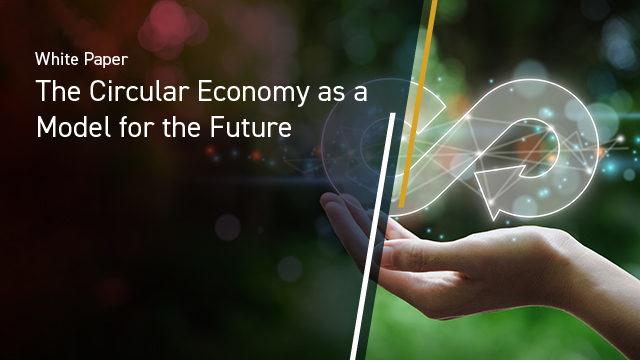The Circular Economy as a Model for the Future
Awareness of sustainability is growing. Today’s consumers are often making an extra effort to purchase products whose suppliers produce them in an environmentally friendly way, recycle, and use natural ingredients. This represents a fundamental societal shift that puts pressure on every company.
On top of this, there are strict regulations coming from the European Union (EU) Corporate Sustainability Directive that will make sustainability reporting mandatory in 2023 for thousands of companies. The new rules must be taken seriously, or companies will see severe penalties for violations.
How can companies and their products become more sustainable? How can they manage their entry into the circular economy? What digital tools are already available to help with this initiative? Find answers to these questions and more in this white paper.
The Circular Economy as a Model for the Future
Awareness of sustainability is growing. Today’s consumers are often making an extra effort to purchase products whose suppliers produce them in an environmentally friendly way, recycle, and use natural ingredients. This represents a fundamental societal shift that puts pressure on every company.
On top of this, there are strict regulations coming from the European Union (EU) Corporate Sustainability Directive that will make sustainability reporting mandatory in 2023 for thousands of companies. The new rules must be taken seriously, or companies will see severe penalties for violations.
How can companies and their products become more sustainable? How can they manage their entry into the circular economy? What digital tools are already available to help with this initiative? Find answers to these questions and more in this white paper.

